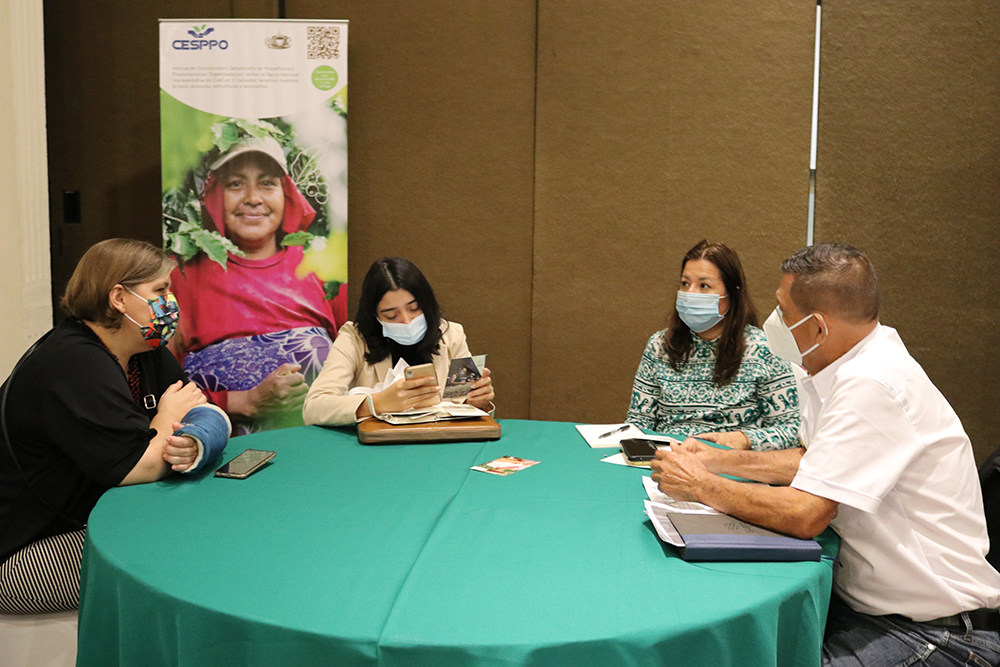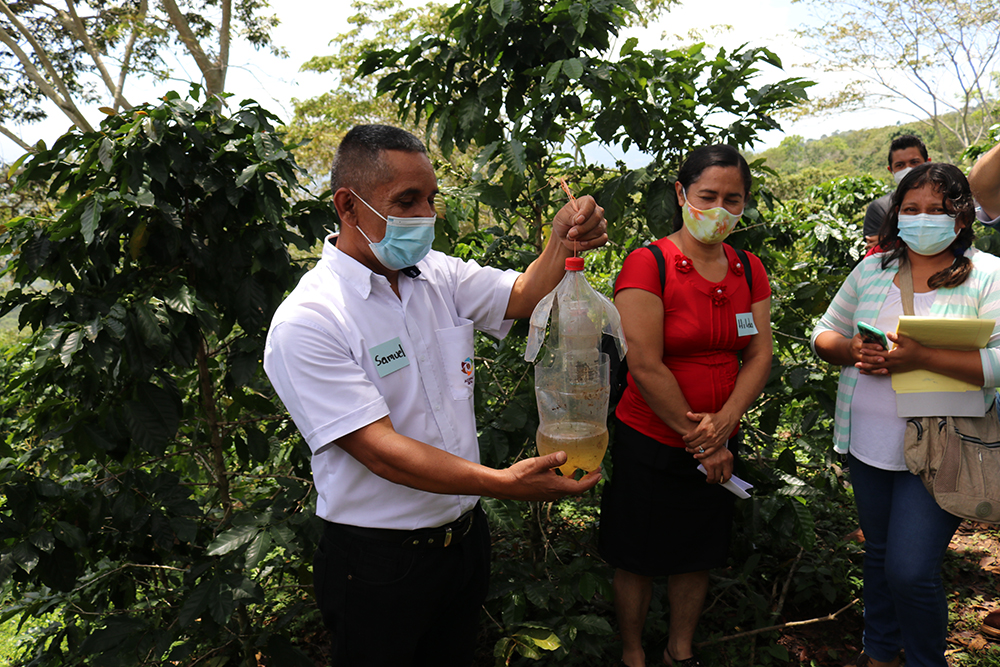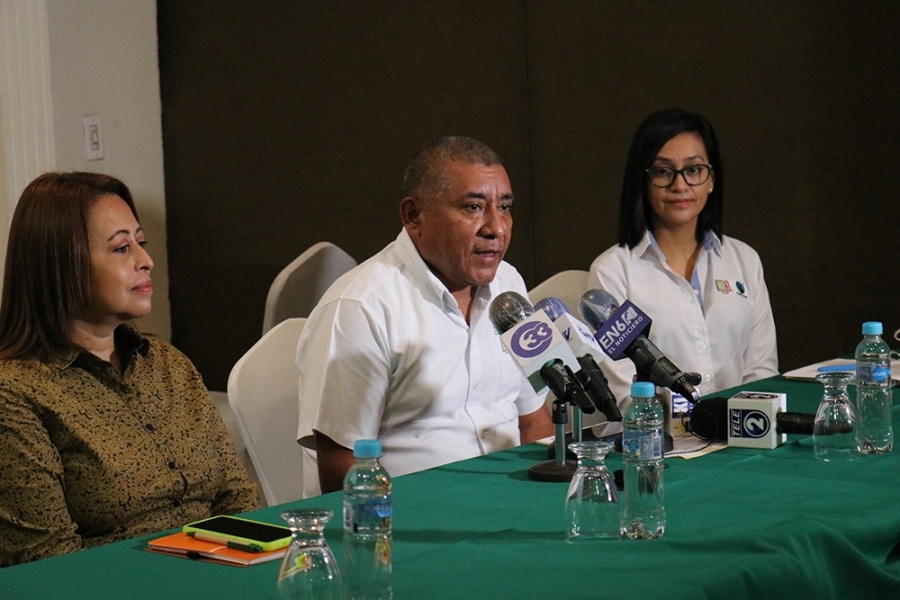The biggest effect that climate change has had on small producers are pests and diseases, which have brought us low production; we also see on our farms that, in the coffee ripening season, the rains that are falling are affecting us", said Rigoberto Rojas, coffee producer and president of CESPPO, which brings together seven cooperatives certified in Fairtrade in El Salvador.
Fairtrade certified cooperatives in El Salvador.

In recent years there have been significant changes in the climate, globally, regionally and nationally. Extreme weather phenomena such as storms, tropical depressions, and prolonged periods of drought during the rainy months are some of the effects registered in Salvadoran territory.
"It is important that as small producers we unite and advocate against climate change, which is already affecting us", said Rojas during the event "Small producers facing climate change, amplifying their voice to strengthen alliances".

In El Salvador, coffee forests represent 7% of the country's forests and are the main reserve for the generation of water and oxygen at the national level. In addition, they capture oxygen, which helps to reduce carbon dioxide emissions and protect fauna. For this reason, CESPPO advocates for the protection and preservation of these forests by promoting an agroecological production model.
A few days before the opening of the World Climate Summit, COP26, to be held in Glasgow (United Kingdom), salvadoran small producers are calling on civil society organizations, donors and government entities to promote partnerships to ensure technical assistance, technology transfer and financing to promote adaptation and mitigation actions to climate change.
Globally, the nearly 2 million small-scale producers that are part of the Fairtrade system have called in a letter to rich nations to fulfill their commitment to allocate US$100 billion to climate finance.
 English
English  Español
Español 
